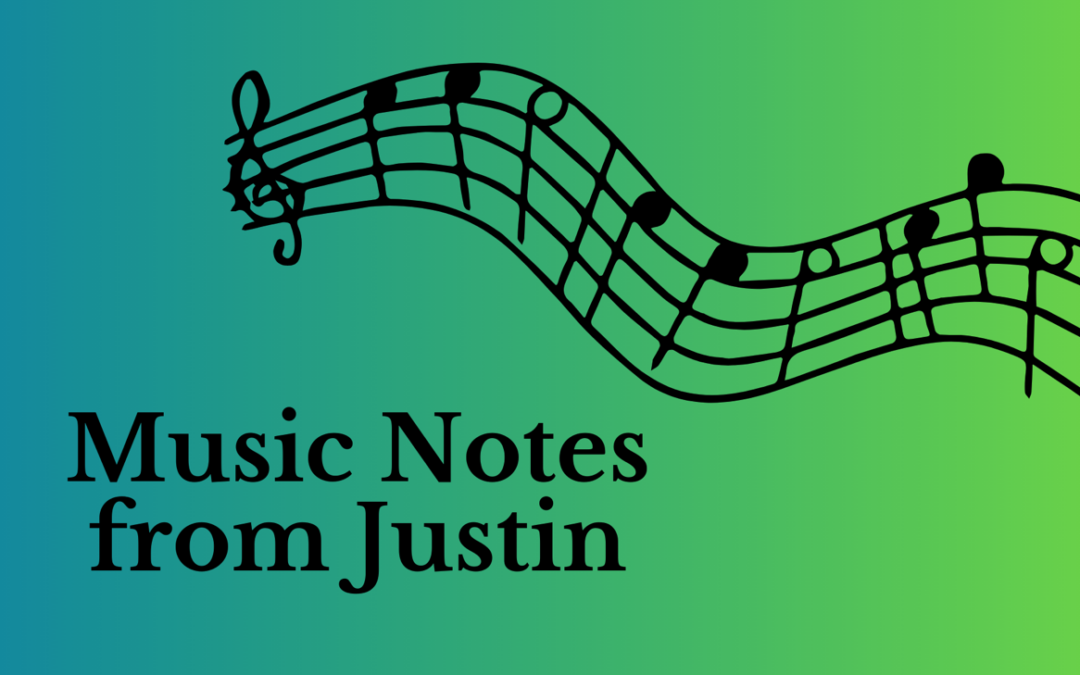Music Notes
Sunday, April 28th, 2024
Before some explanatory notes regarding today’s music, a reminder that our final Music at Trinity Concert is in three short weeks, on Saturday, May 18th at 7:30 pm. This will be a splendid program of music from the French Baroque for voices and instruments, featuring the renowned North Carolina Baroque Orchestra and my own internationally award-winning Royal Voices of Charlotte. If you were in attendance to hear our Advent presentation of music from Charpentier’s Midnight Mass for Christmas last December – we will do that complete splendid Mass. Visit our website for tickets, which are on sale now!
This month, the choir will sing music from three of the great Evensong settings from the great tradition of the Anglican church. We’re doing this, of course, not only to offer our community some beautiful sacred music but also to prepare for our residency at Christ Church Cathedral in Oxford this August, where we will sing four Evensongs and a Sunday service in that deeply historical sacred space.
So what is Evensong, anyway? Presbyterians might not be intimately familiar with the genre – it’s similar to what we might call sung Vespers. Evensong is based on the medieval monastic offices of the Roman church (the English Book of Common Prayer combined the multiple hours of observance for the medieval monks into two: matins in the morning and evensong in the evening), and at its simplest level marks the passing of another day.
Typically sung in the cathedrals and college of England and the Anglican Church, its texts and canticles have provided inspiration over the years for countless musical settings by the finest composers of the English tradition, from Tallis (16th-century) through Michael Finnissy (21st-century).
Since most of the service is sung by the choir on behalf of those present, without much congregational hymn singing, one can approach this service as one likes. There is little requirement for active participation; one may follow along with the prayer of the service, or merely bask in the music and atmosphere. As one writer has it:
“Today, evensong is the most used part of the Book of Common Prayer, largely untouched by the liturgical reforms of the past 40 years. It continues to inspire and support some of our culture’s most sophisticated musical endeavors. The passions that surround its observance are implicit, but it provides a firm peg on which to hang deeply personal reflections and memories…which linger long after [its end].”
The service itself starts with a set of responses (“O Lord, open our lips; and our mouth shall show forth thy praise”) and continues through a psalm, a set of canticles (the Magnificat and the Nunc Dimittis, the weightiest of the offerings, which we will sing in the coming weeks) and two short readings, further chanted responses and prayers (including the Lord’s Prayer), a choral anthem, and concludes with a set of prayers reflecting current events or concerns.
This morning in our own service, we sing the “Mag/Nunc” – a setting of the Magnificat (Mary’s song of joy at the announcement she would bear the infant Jesus) and the Nunc Dimittis (a benediction and song of farewell) – by Henry Purcell, the late Baroque composer who wrote these for the choir at Westminster Abbey. Notable for its quintessentially English alternation of six-part solos with grand tutti choral pronouncements, this is one of the most beloved Evensong settings in the repertoire, especially its grandiose, chromatic “Amen” which brings the work to a stirring close.
